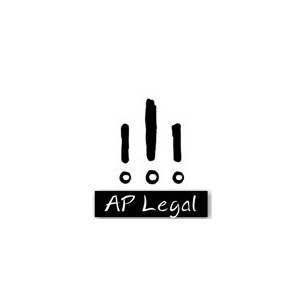Best Financial Services Regulation Lawyers in Suva
Share your needs with us, get contacted by law firms.
Free. Takes 2 min.
List of the best lawyers in Suva, Fiji
About Financial Services Regulation Law in Suva, Fiji
Financial Services Regulation in Suva, Fiji, involves the oversight and management of financial institutions, including banks, insurance companies, and investment firms, to ensure they operate within set legal frameworks. These regulations are designed to maintain the stability and integrity of the financial system, protect consumers, and prevent financial crimes such as money laundering and fraud. The Reserve Bank of Fiji serves as the primary regulatory body overseeing financial institutions in the country, ensuring these entities comply with the relevant laws and guidelines.
Why You May Need a Lawyer
There are various situations where individuals or businesses might require legal advice in the area of Financial Services Regulation:
- Licensing and Compliance: Financial institutions often need assistance in obtaining licenses and ensuring ongoing compliance with regulatory requirements.
- Dispute Resolution: Legal disputes, whether arising from contractual conflicts or regulatory non-compliance, often need expert legal intervention.
- Investor Advice: Guidance on investment laws and protecting investors' rights necessitates legal expertise.
- Mergers and Acquisitions: Navigating the legal landscapes during mergers or acquisitions of financial services entities requires detailed legal scrutiny.
- Addressing Regulatory Breaches: Legal help is vital if a financial institution faces allegations of regulatory breaches to ensure proper defense and resolution.
Local Laws Overview
Financial Services Regulation in Fiji is governed by a complex network of laws and regulations. Key aspects include:
- Banking Act 1995: This Act regulates the operations of banks and outlines the requirements for obtaining banking licenses.
- Reserve Bank of Fiji Act 1983: Establishes the Reserve Bank of Fiji and empowers it to oversee financial institutions.
- Fiji Financial Intelligence Unit: Responsible for implementing anti-money laundering and counter-terrorism financing policies.
- Companies Act 2015: Governs the formation, operation, and regulation of companies in Fiji, including financial institutions.
- Securities Industrial Act 1978: Regulates Fiji's capital markets and protects investors.
Frequently Asked Questions
What is the primary regulatory authority for financial services in Fiji?
The Reserve Bank of Fiji is the main regulatory authority overseeing financial institutions in Fiji, ensuring compliance with applicable laws and regulations.
What are the key laws governing financial services in Fiji?
Key laws include the Banking Act 1995, Reserve Bank of Fiji Act 1983, Companies Act 2015, and Securities Industrial Act 1978, among others.
Do financial institutions require a license to operate in Fiji?
Yes, financial institutions need to obtain appropriate licenses from the Reserve Bank of Fiji to operate legally.
How does the Reserve Bank of Fiji regulate banks?
The Reserve Bank oversees compliance, enforces regulations, conducts audits, and monitors the financial stability of banks.
What should I do if I have a dispute with a financial institution in Fiji?
It is advisable to seek legal assistance to understand your rights and options for resolving the dispute effectively and in compliance with local laws.
Are there regulations in Fiji to prevent money laundering?
Yes, the Fiji Financial Intelligence Unit is responsible for implementing policies to prevent money laundering and terrorist financing.
How can I ensure my financial institution complies with local laws?
Engaging a lawyer with expertise in Financial Services Regulation can help in navigating compliance requirements effectively.
What are the penalties for regulatory non-compliance in Fiji?
Penalties can range from fines and sanctions to revocation of licenses, depending on the severity of the non-compliance.
Is there legal protection for investors in Fiji?
Yes, the Securities Industrial Act provides legal frameworks to safeguard investors' interests in the capital markets.
Can foreign financial institutions operate in Fiji?
Yes, but they must comply with local laws and obtain the necessary licenses to operate legally in Fiji.
Additional Resources
For further information and support, consider the following resources:
- Reserve Bank of Fiji: The central bank providing detailed guidelines and regulations.
- Fiji Financial Intelligence Unit: For information on anti-money laundering regulations.
- Ministry of Economy, Fiji: Provides updates and resources on financial policies and laws.
Next Steps
If you find yourself in need of legal assistance in Financial Services Regulation, consider the following steps:
- Research and Contact Lawyers: Look for qualified lawyers specializing in financial services law in Fiji.
- Gather Documentation: Collect all relevant documents and details pertaining to your specific issue.
- Schedule Consultations: Arrange meetings with legal professionals to discuss your case and understand their approach.
- Discuss Fees and Agreements: Ensure you understand the fee structure and agreement terms before engaging a lawyer.
Lawzana helps you find the best lawyers and law firms in Suva through a curated and pre-screened list of qualified legal professionals. Our platform offers rankings and detailed profiles of attorneys and law firms, allowing you to compare based on practice areas, including Financial Services Regulation, experience, and client feedback.
Each profile includes a description of the firm's areas of practice, client reviews, team members and partners, year of establishment, spoken languages, office locations, contact information, social media presence, and any published articles or resources. Most firms on our platform speak English and are experienced in both local and international legal matters.
Get a quote from top-rated law firms in Suva, Fiji — quickly, securely, and without unnecessary hassle.
Disclaimer:
The information provided on this page is for general informational purposes only and does not constitute legal advice. While we strive to ensure the accuracy and relevance of the content, legal information may change over time, and interpretations of the law can vary. You should always consult with a qualified legal professional for advice specific to your situation.
We disclaim all liability for actions taken or not taken based on the content of this page. If you believe any information is incorrect or outdated, please contact us, and we will review and update it where appropriate.
















